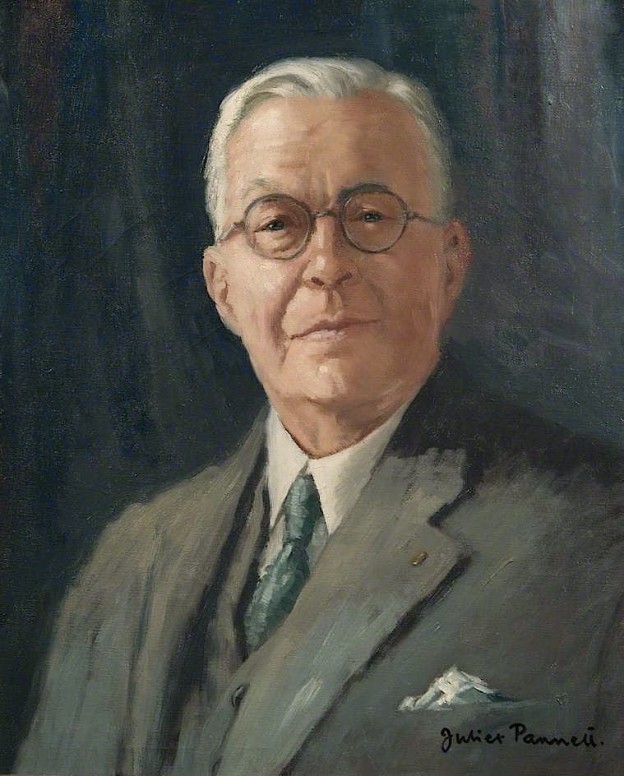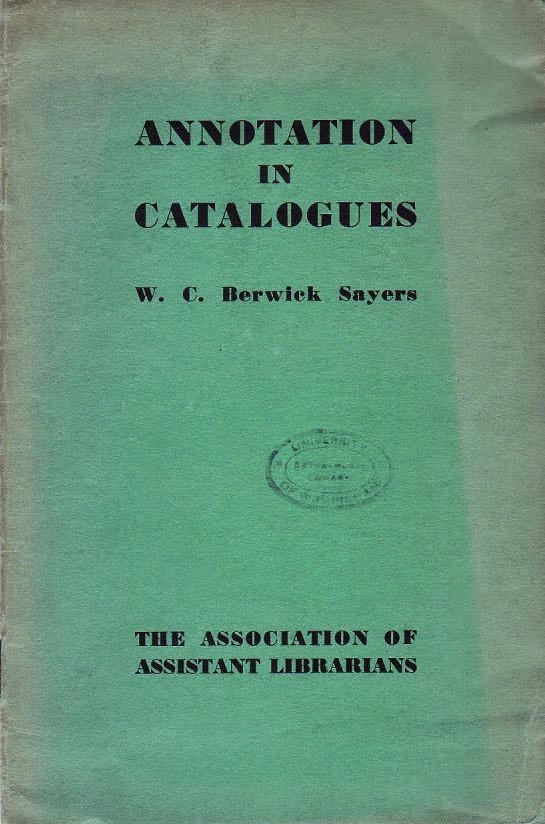 |
| Berwick Sayers by Juliet K Pannett |
The second and last part of Berwick Sayers masterly work Annotation in Catalogues (1948). Sayers was, like Casanova, a prince among librarians and also a man with many other interests - he wrote poetry, music, fiction and a book on the black composer Samuel Coleridge-Taylor. He also wrote a travel book Over some Alpine Passes. Memories of 1908. His life was commemorated in a work published a year after his death The Sayers memorial volume : essays in librarianship in memory of William Charles Berwick (1961.) He also wrote much on librarianship, including some dryish titles like: Report on the hours, salaries, training, and conditions of service of assistants in British municipal libraries (1911.)
He wrote a comprehensive history of Croydon and his life was spent there, mostly at Croydon Library. Croydon is a large London outer suburb of some importance - one time residents include: Flower Fairies creator Cicely Mary Barker, singer Desmond Dekker, Raymond Chandler, Emily Blunt, Samuel Coleridge-Taylor, A. Conan Doyle, Amy Winehouse, Kate Moss, Tracey Emin, D.H. Lawrence, Alfred Russell Wallace, Brit-pack artist Sam Taylor-Wood, Katie Melua, Kirstie MacColl, Roy Hodgson, billionaire Philip Green, Noel Fielding (Mighty Boosh) Victorian sexologist Havelock Ellis, Jeff Beck and Emile Zola.
Continue reading

